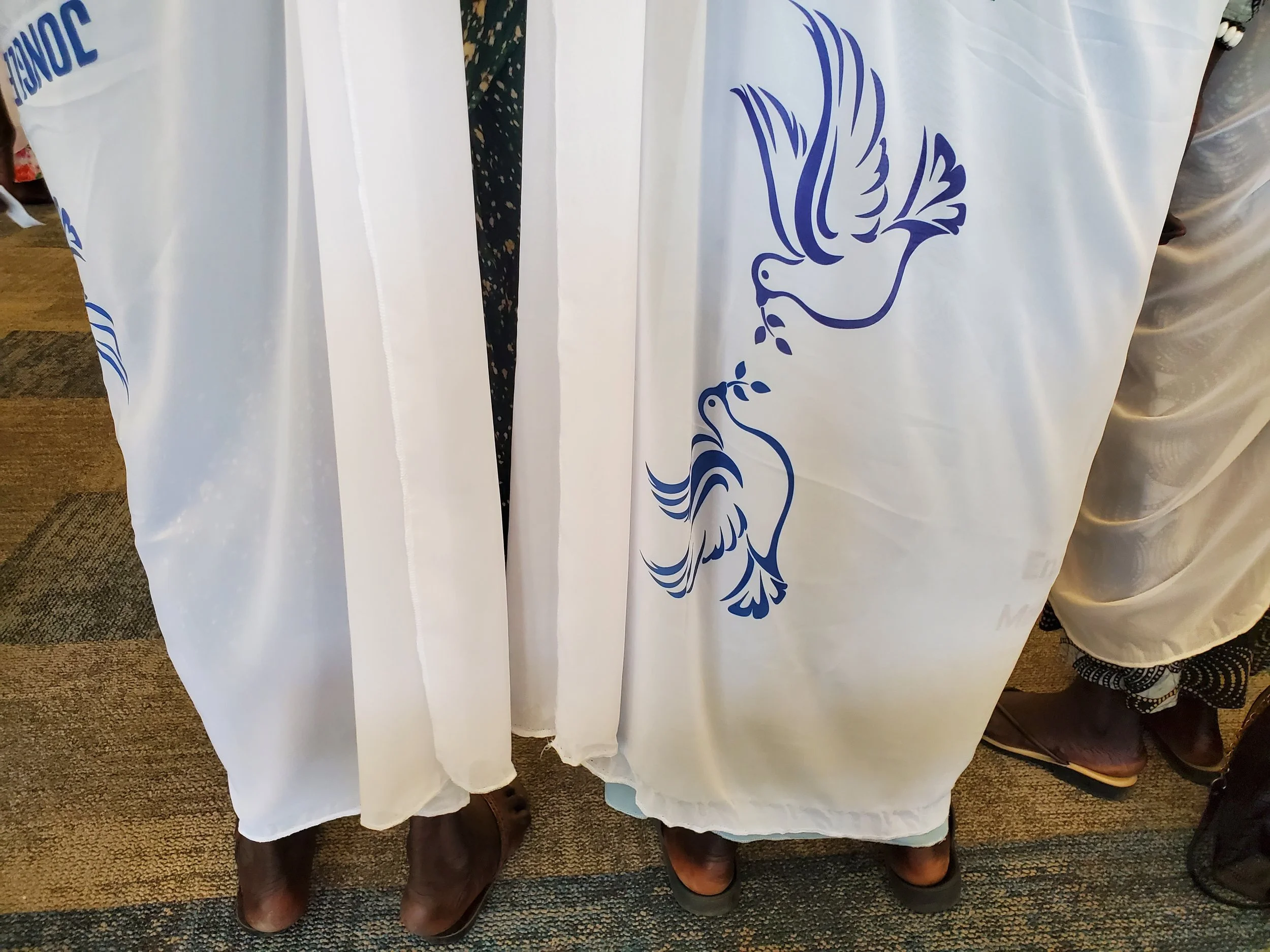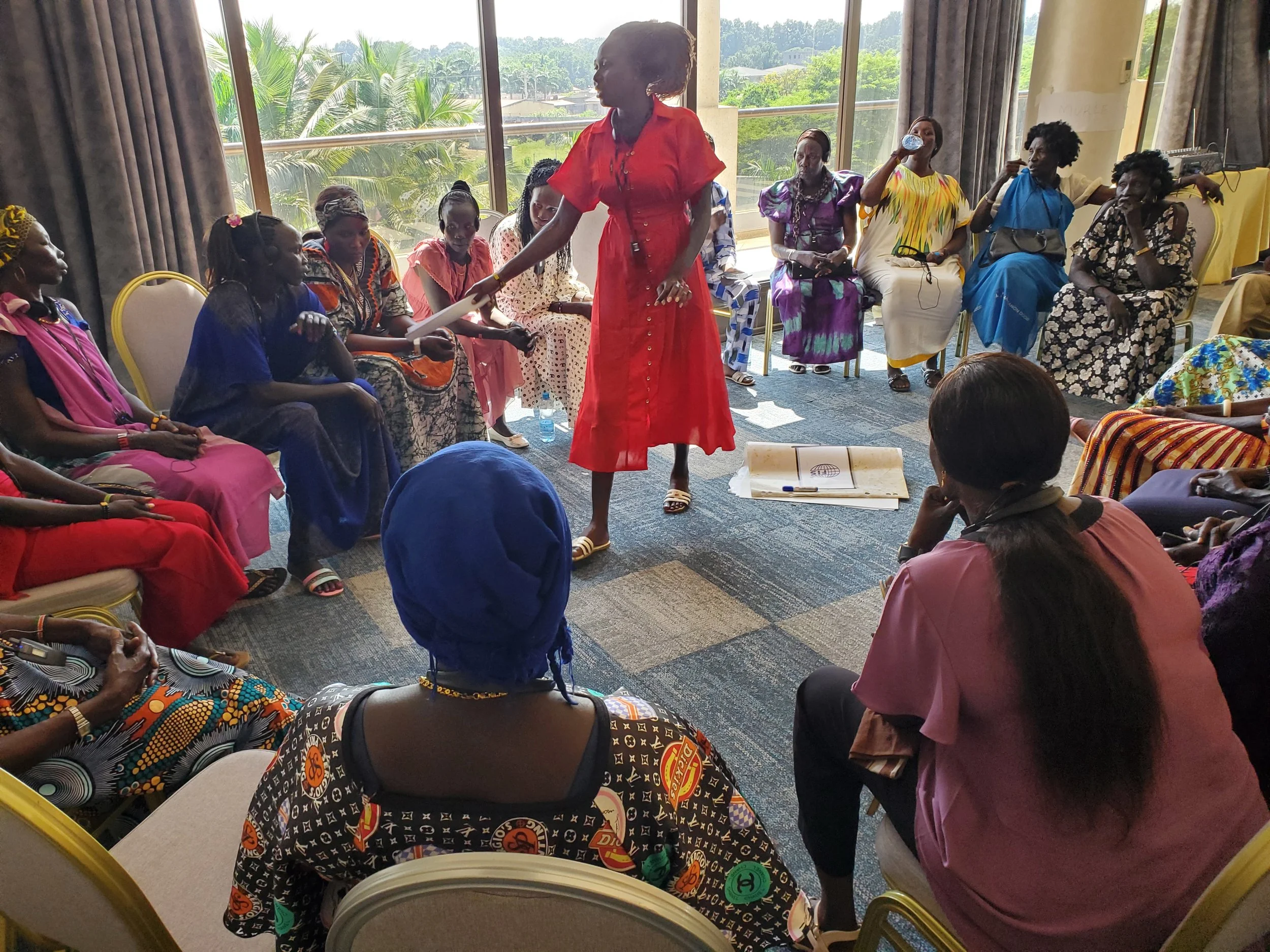Bridges of Peace
Diar Chaak Ganon
Bridges of Peace (BOP) is a women-centred peacebuilding initiative dedicated to creating safe, inclusive, and nurturing spaces for dialogue, healing, reflection, sisterhood, and personal transformation.
The program draws inspiration from Creators of Peace International (CoP). BOP aims to empower women to be catalysts for peace within themselves, their families, and communities.
The content and approach of the programme are co-created with women from the communities where it is implemented. This ensures the programme remains contextually relevant and reflective of lived realities, cultural values, and pressing issues facing women.
The journey so far…
Since its inception, BOP has convened Peace Circles with over 330 women in 25 payams across five states. Participants include women leaders, businesswomen, traditional justice actors, and members of women’s associations.
Our impact goes beyond numbers. It lives in the stories shared, possibilities created the healing that begins, and the actions women take afterwards.
Read more below…
-
Empower women to take responsibility for their actions and use their creativity to contribute uniquely to community well-being.
Create and nurture spaces where women from diverse backgrounds can build strong bonds, foster peace and discuss issues that affect them, such as GBV and norms.
Strengthen and encourage active participation in ongoing peace and dialogue processes.
Build their resilience through livelihood opportunities.
-
Facilitated Conversations: Peace Circles are led by trained local facilitators who understand the cultural and social contexts. They guide participants through a thoughtfully curated dialogue process.
Culturally Inclusive: Sessions are conducted in local languages to ensure accessibility and inclusion, allowing women to participate fully and authentically.
Storytelling as a Tool: Personal storytelling is used to foster empathy, healing, and deep connections among participants.
Structured Peace Circles: Each Peace Circle brings together 13 participants and two facilitators over three days, focusing on six key thematic areas.
Methodologies: The programme integrates tools such as personal reflection, journaling, “holding space” for self and others, self-love, sisterhood, and narrative exploration through the theme “My Journey.”
-
Conflict Resolution: Women in Dengjok Payam in Akobo facilitated a peaceful resolution of a longstanding conflict with neighbouring Gakdong Payam, showcasing the vital role of women in community reconciliation.
Sustaining Sisterhood Women formed a collective vegetable garden in Akilo payam, GPAA, to nurture the support networks and solidarity created through Peace Circles.
Village Savings and Loans Associations (VSLAs): In most of the locations, women have organised VSLAs to strengthen economic resilience and deepen social bonds.
Participation in Peace Structures: Women are increasingly involved in formal peacebuilding efforts, identifying both the roles they play and the support they need to be more effective.
Land for Livelihood: In Duk county, one woman donated land for a women-led farming initiative aimed at strengthening resilience and raising resources that will eventually fund a community women's Centre.
-
Women are already actively and effectively leading grassroots peacebuilding efforts, often without recognition and support. BOP is identifying these women, seeking to support them as leaders for peace in their communities.
Trauma remains a significant barrier and burden that most of the women we have engaged are dealing with. The BOP approach is adapting it approach to allow more time to recognise and deal with trauma.
Women are ready and willing to take collective action to enhance community resilience and advocate for change.




